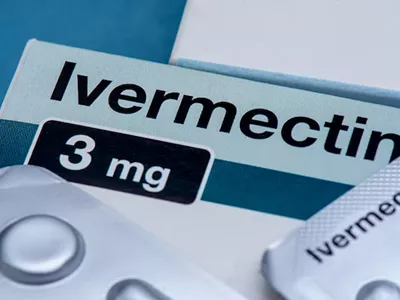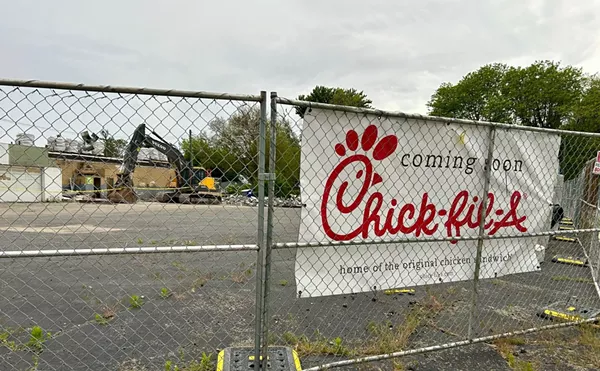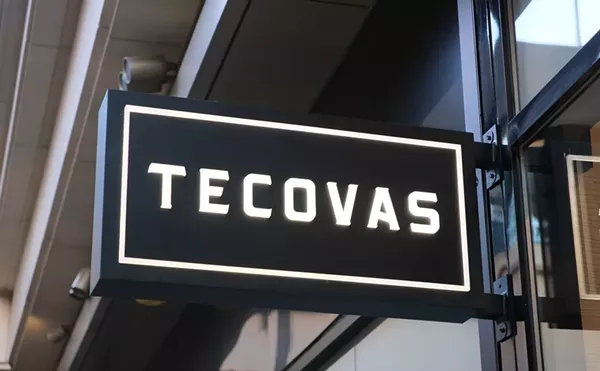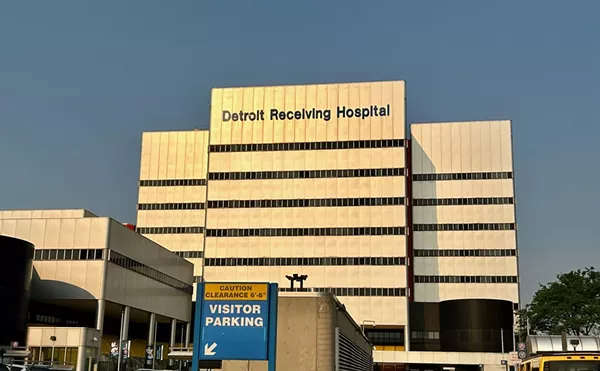How Michigan’s high electricity rates put taxpayers on the hook for auto industry ‘blank check’

Audio By Carbonatix
[
{
"name": "GPT - Leaderboard - Inline - Content",
"component": "35519556",
"insertPoint": "5th",
"startingPoint": "3",
"requiredCountToDisplay": "3",
"maxInsertions": 100,
"adList": [
{
"adPreset": "LeaderboardInline"
}
]
}
]
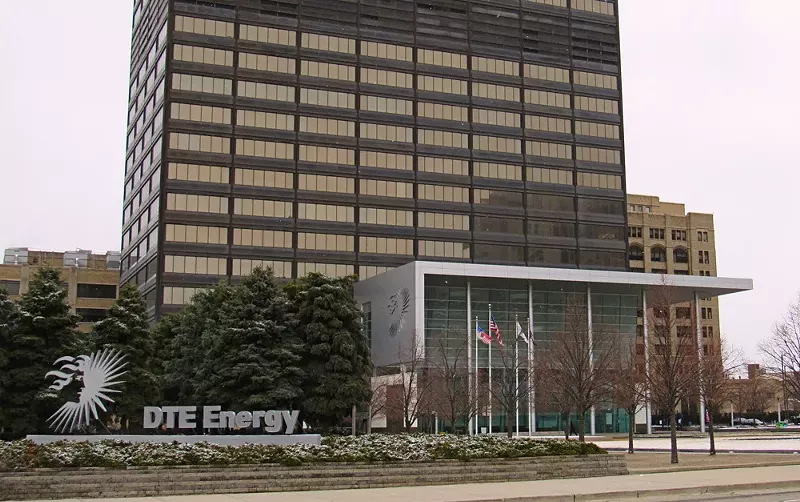
In September, Ford announced plans to build new electric vehicle campuses in Kentucky and Tennessee. Michigan wasn’t in the running during the automakers’ site selection process, and state lawmakers this week proposed their response: A corporate welfare package that critics labeled a “blank check” for the auto industry.
The GOP-authored bill, approved with bipartisan support in both chambers and headed to Gov. Gretchen Whitmer’s desk, creates a new “shell” mechanism that would funnel money to the Michigan Economic Development Corporation. Lawmakers say the new fund is specifically designed to help the state land new EV battery plants, and will likely benefit automakers like Ford, which cited Michigan’s high energy costs as a reason for opening plants in other states.
The bill’s bipartisan opponents panned the giveaway, which Democratic House Floor Leader Yousef Rabhi says could make more than $1 billion available to automakers that already earn billions in profits.
“Here we are with another massive tax subsidy for companies that are profitable,” Rabhi says. “It’s like the private sector can’t operate without government subsidies, and that's a problem.”
Legislative leaders and Whitmer administration officials have said they are in conversations with auto companies over four possible projects, but have signed non-disclosure agreements that prevent them from sharing details with other lawmakers. Rabhi says withholding such information is unprecedented during his time in the House, and criticized leadership over its secrecy.
“This legislation is creating a vessel into which they are going to pour money to pay for this plan that they are creating, but we don't know what the plan is, and they're just saying ‘trust us,’” he says. “Taxpayers deserve to know where tax money is being spent.”
The law gives the MEDC a high amount of leeway to negotiate the deals, Rabhi adds, and two amendments he proposed in committee — one that would have required “good-paying” jobs and another that would’ve limited the incentive to one year — were voted down.
The state is expected to tap $8 billion in unspent federal COVID-19 relief funds or other sources to cover the cost, but Rabhi says that money is desperately needed for infrastructure upgrades.
“Who wants to locate a business in a state where you can’t turn on the water and have clean water come out of the tap?” he asks.
DTE Energy and Consumers Energy to blame?
Ford’s decision to build plants outside of Michigan “sent shockwaves through our state,” Rep. Jason Wentworth told reporters on Wednesday."And we need to make sure we have the resources and tools ready to be competitive across the country,” he added.
Lawmakers’ perceived need for hefty new tax incentives to secure EV battery plants partly stems from DTE Energy and Consumers Energy’s high electric rates. Battery plants chew up to five times more electricity than normal auto plants, and while Ford cited a number of factors that influenced its decision, it listed cheaper energy costs as a main issue.
An Outlier Media analysis of electricity rates in Kentucky, Tennessee, and Michigan found that an industrial giant like Ford could potentially save between $18 million and $35 million annually by locating their plants in regions with cheaper rates.
Rates in Tennessee are much lower because the state is largely served by a publicly owned utility that has fewer costs than private, investor-owned utilities like DTE or Consumers. Public utilities don’t have to make dividend payments to Wall Street investors that add hundreds of millions of dollars to their annual costs, so its business model incentivizes economic efficiency. Public utilities also get lower borrowing rates and pay fewer taxes, which helps keep down costs.
That leaves Michigan at a disadvantage with its expensive energy, though battery makers have opened factories in Holland, Michigan, which is served by a public utility that’s surrounded by Consumers’ territory. Outlier found that an industrial customer like a battery plant could save $20 million annually by locating in Holland Board of Public Works territory instead of Consumers.
On Friday, GM announced it’s building a new battery plant in the Lansing area, which is served by a publicly owned utility. GM told The Detroit News that taxpayers' money “will enable companies like ours to improve their competitiveness by addressing operating costs for new investment and job creation.”
Instead of requiring DTE and Consumers Energy to cut into investor profits and lower rates to make Michigan more attractive to automakers, state leaders are creating a scenario in which taxpayers are on the hook.
“This subsidy is covering DTE’s profits and flawed business model,” Rabhi says.
DTE Energy didn’t immediately respond to a request for comment, while Consumers Energy spokesperson Katie Carey denied that Consumers’ rates are higher, and says that the company may cut rates for the largest industrial users in the future. “Consumers Energy has a history of working with large industrial and commercial customers to provide innovative and competitive rate options.”
“I’m not quite sure what you mean by high electric rates,” she says. She and DTE Energy alleged that Ford walked back comments about the state’s high energy costs driving their decision.
‘Gilbert bills’
Meanwhile, a separate bill approved by both chambers this week extended for five years a tax incentive package that so far has largely only benefited a Dan Gilbert-led business. The transformational brownfields, informally called the “Gilbert bills,” will continue to redirect money from schools and local governments.The state’s re-up on the “Gilbert bills” follows four years in which the first pot of money largely benefited the billionaire with $618 million in taxpayer funds for his four high-profile downtown Detroit developments, including the Hudson’s site project and Book Cadillac renovation. A company behind the redevelopment of an abandoned historic paper mill south of Kalamazoo is the only other to use the incentive, Crain’s reported.
The incentive is controversial because residents who live or work in buildings with a transformational brownfield incentive attached pay their income tax for 30 years to Gilbert or other developers instead of the IRS. Rabhi says that in effect “creates a fiefdom” run by developers, and added he opposes the new Gilbert bills even though they include tweaks designed to make the breaks accessible to more companies.
“Yes, the changes opens it to more people, but that's not necessarily a good thing,” Rabhi says.
A previous Metro Times analysis raised questions about the value taxpayers get in the state’s massive corporate subsidies. It found Michigan spent about $88,000 to create one job via the Gilbert bills. A tax subsidy expert who reviewed the analysis labeled that level of spending a “guaranteed loser” for taxpayers.
Rabhi says he proposed an amendment that would’ve made the state a partner that receives a return on investment in any project using the incentives, but that was shot down in committee.
“If they can’t operate without our tax dollars, then our taxpayers deserve to have a return on investment,” Rabhi says. “It’s unacceptable to hand this out with no benefit to the taxpayers.”
Stay connected with Detroit Metro Times. Subscribe to our newsletters, and follow us on Google News, Apple News, Twitter, Facebook, Instagram, or Reddit.


